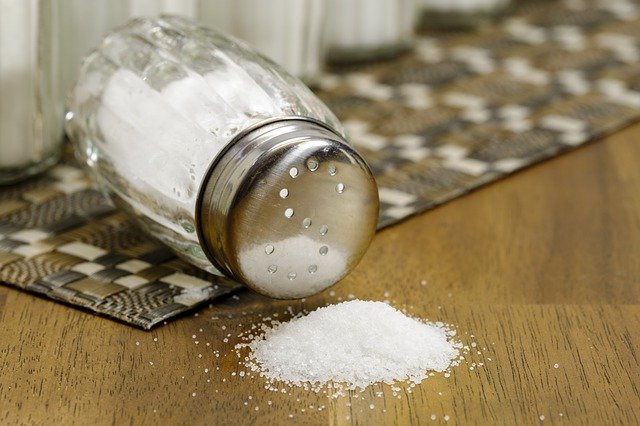The main distinction between kosher salt and table salt is that kosher salt lacks additives like iodine, has a coarse texture, and is used exclusively for cooking processes, while table salt has a fine texture with an iodinated composition and is used for food seasoning purposes. Both types of salt have similar chemical compositions, but they differ in shape, size, and flavor.
Key Takeaways
- Kosher salt has a coarse texture, contains no additives, and is used for cooking processes.
- Table salt has a fine texture, is iodinated, and is used for food seasoning purposes.
- Both kosher salt and table salt have similar chemical compositions, but they differ in shape, size, and flavor.
What is Kosher Salt?
Kosher salt consists of sodium chloride and is free from other additives and added nutrients. These large, crystal-shaped flakes are used in cooking processes in the kitchen to add flavor to food rather than providing a salty taste. Kosher salt can be found in underground caves in the sea, and it is made by drying saltwater.
The use of kosher salt has significantly increased in recent decades. Typically, when cooking meat, kosher salt is used to remove blood from the meat. Most restaurant chefs worldwide prefer kosher salt for food preparation and flavoring due to its large crystal size and texture.
What is Table Salt?
Table salt is the white salt found in saltshakers. Essentially, table salt adds a salty taste to food when it is on the table. Table salt is specifically added to foods like French fries, popcorn, and vegetable salads for seasoning. Table salt also contains sodium chloride and is made as small crystal flakes with a smoother texture than kosher salt. Some describe table salt as fine salt due to its consistent crystals and fine consistency.
Table salt is also made by drying saltwater after mining underground caves in the sea. Iodine, which has healing properties for the thyroid, is added to table salt. However, iodine-free table salt can also be found in the market today based on customer preferences.
What is the Difference Between Kosher Salt and Table Salt?
The chemical composition of both kosher salt and table salt is similar. They differ from each other in shape, size, and flavor. Although both salts are used in food flavoring processes, kosher salt is used in cooking processes in the kitchen, while table salt is used for seasoning food on the table. Neither salt can be considered healthier than the other since their nutrient compositions are equal. The key difference between kosher salt and table salt is the coarse texture of kosher salt compared to the fine and smooth texture of table salt.
Another main difference between kosher salt and table salt is that table salt is fortified with iodine, while kosher salt is not fortified with any other nutrients or additives. All salt is obtained from saltwater, and the nutrient and chemical compositions are quite similar. The differences primarily arise from the various brands available in the market.
Summary – Kosher Salt vs Table Salt
Salt is used in food flavoring processes. The key difference between kosher salt and table salt is that kosher salt has a coarse texture without any additives like iodine, while table salt has a smooth and fine texture fortified with iodine. Although both types of salt are used as food flavors, kosher salt is used in cooking processes, and table salt is used in seasoning dishes at the final stage before consumption.
